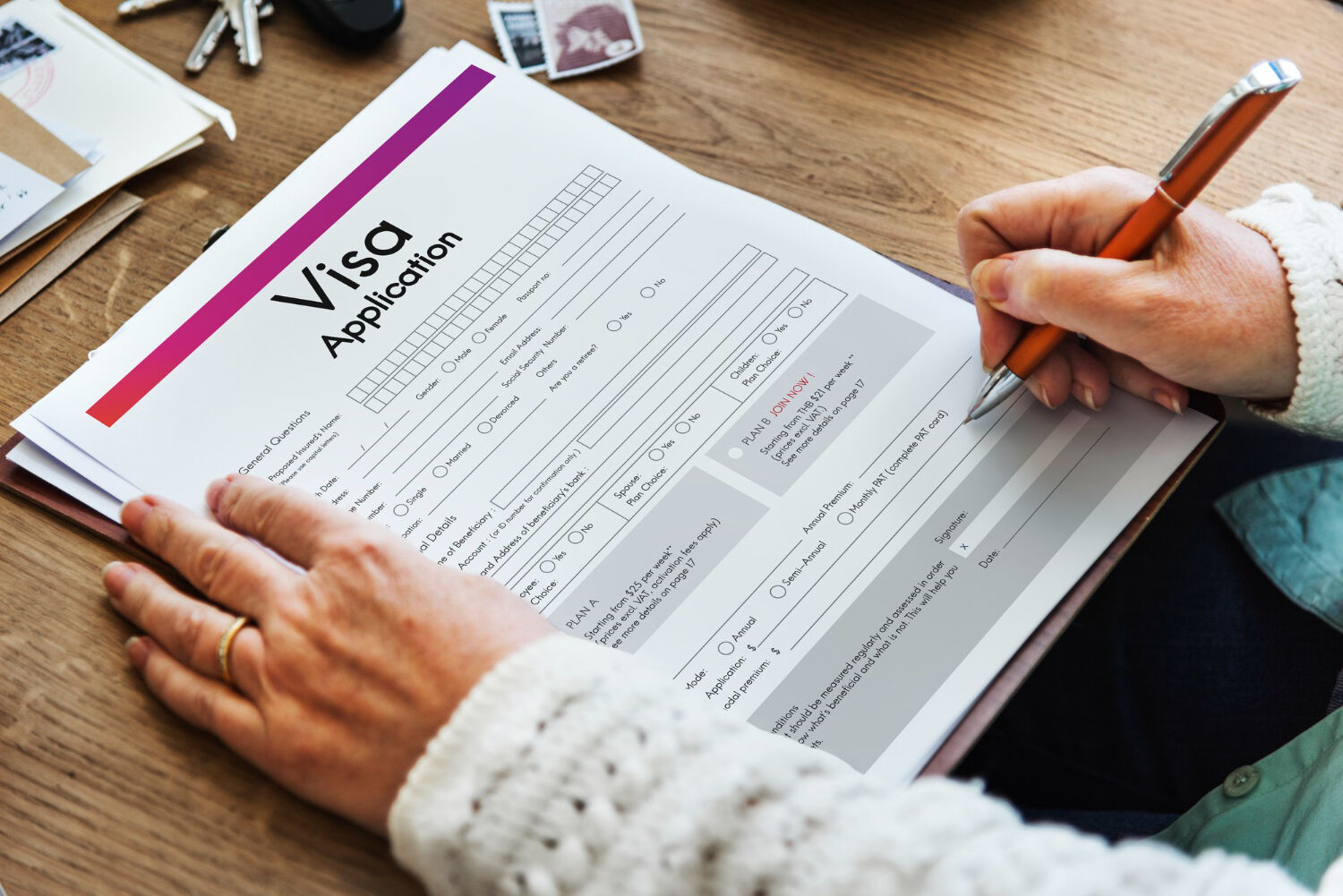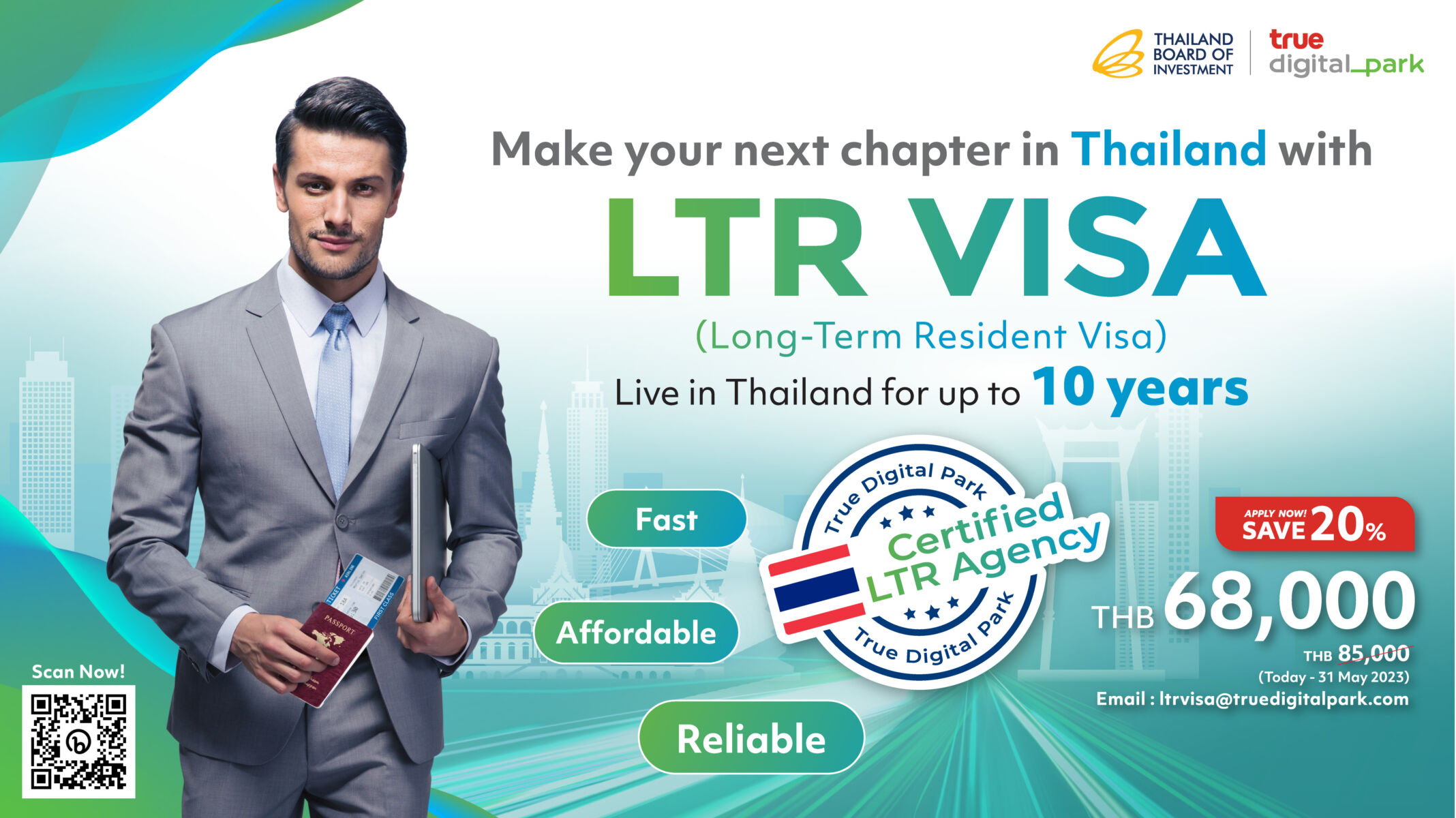Everything you need to know about making Thailand your new home (with LTR Visa)

Thailand has earned its stripes as one of Asia’s top destinations for expats itching to swap the ordinary for the tropical. It’s not just about sipping coconut water on sandy shores, though. Thailand has truly blossomed into a regional hub for living and doing business. And if you’re thinking about packing your bags and diving into this enchanting country, the right visa (think LTR or Smart Visa) could be your passport to boundless opportunities and a life drenched in that ever-so-famous Thai sunshine. But how can you apply for these visas? What other things do you need to prepare in order to make the Land of Smiles your new home? Keep reading to discover all the essential information to work and live in Thailand.
1. The importance of having the right type of visa

When planning a move to the Land of Smiles, ensuring you have the right type of visa is the foundation for a smooth transition. Being well-equipped with an appropriate visa can make all the difference in your experience as an expat. Fortunately, Thailand offers two visa options that simplify the process for foreigners to live and work in the country. These include:
Long-Term Resident (LTR Visa)
If you’re ready for the long-term commitment, Thailand’s new Long-Term Resident (LTR) Visa is for you. This visa is aimed at drawing ‘high potential’ individuals to the country. It offers a variety of tax and non-tax benefits. Thus, boosting Thailand’s appeal as a regional hub for living and doing business. The LTR visas are available to four categories of applicants: Wealthy Global Citizens, Wealthy Pensioners, Work-from-Thailand Professionals, and Highly Skilled Professionals. Spouses and dependents of LTR visa holders qualify for the same visas as well.
The benefits for LTR visa holders are undeniably attractive: a 10-year renewable visa, exemption from the 4 Thais to 1 foreigner employment requirement ratio, and tax exemption for overseas income, among others. So, if you fit the bill, it’s definitely worth a cheeky gander.
Let True Digital Park help your application process

The application process will be slightly bureaucratic, but you can always trust True Digital Park to help you and it will be a breeze. The LTR visa is available for a starting cost of 85,000 baht with True Digital Park. But if you apply by 31 December 2023, you can nab it at a special rate of just 68,000 baht (do note there’s a 50,000 baht application fee). Services provided cover consultation, document screening, and guidance throughout the entire LTR visa application process, with some extra nifty services available for an additional cost.
SMART Visa
Are you a tech-savvy entrepreneur who wants to join the buzzing tech community where startups are thriving and innovation is the name of the game? You’re in luck! The Thai government has tailored the Thailand SMART visa program specifically for foreign innovators to establish a strong presence in its flourishing tech ecosystem.
The SMART visas cater to talents across diverse industries, such as Next-Generation Automotive, Renewable Energy, and Digital Technology. With five options available (T for Talent, I for Investor, E for Executive, S for Startup Entrepreneur, and O for accompanying family members), there’s a perfect fit tailored just for you. This means that if you’ve got the ideas to make a splash in Thailand’s tech tool, then you can apply for a SMART S Visa.
The SMART S Visa
To qualify for the startup-focused SMART S visa, applicants must meet specific criteria that differ for 6-month, 1-year, or 2-year visas. Generally, a well-defined business plan aligned with eligible industries and approved by authorities like the National Innovation Agency (NIA) and the Digital Economy Promotion Agency (DEPA) is crucial.
Lucky recipients of Thailand’s Smart S Visa enjoy several benefits that complement their experience in the country’s dynamic tech community. They do not require work permits, and modifications in job specifications can be easily accommodated. Spouses and children can stay in Thailand for the visa’s duration, with the spouse being allowed to work without a separate work permit. Additionally, the smart visa extends the reporting requirement from 90 days to one year and eliminates the need for a re-entry permit. Lastly, fast-track immigration services at airports make crossing the Thai border a breeze.
And the good news is that you can jump-start your journey by partnering with the TDPK Startup Booster Program. Not only does this collaboration facilitate your visa application, but it also helps integrate startups within Thailand’s tech community through networking events, talks, and mentorship opportunities.
2. Nailing the job scene in Thailand

Thailand’s inviting climate and affordable cost of living have made it a top pick for skilled professionals, digital nomads, and pensioners seeking an inspiring location to work remotely or settle into retirement bliss. This growing community of expats has greatly contributed to the cultural landscape and overall dynamism of the Thai economy.
A diverse range of industries are booming in Thailand, offering numerous opportunities for talented professionals to make their mark. From tourism and hospitality to technology and manufacturing, the local job market is experiencing significant growth. Therefore, it presents potential employees with a wide array of career paths to choose from.
Another exciting prospect for expats in Thailand is the ability to start their own business or company. Given the country’s business-friendly climate, international investors and entrepreneurs can find abundant opportunities to make their entrepreneurial dreams come true. Whether you want to open a quaint café or launch a tech start-up, the possibilities are seemingly endless for those with an innovative vision and the determination to see it through.
3. Finding your dream home

Choosing the best place to live in Thailand and deciding whether to rent or buy are crucial for a smooth experience. Each region has its appeals, and understanding the local property market makes the transition enjoyable.
Bangkok is an energetic capital, ideal for expats seeking city life, job opportunities, and modern amenities. Chiang Mai, meanwhile, offers a more relaxed pace with a mix of history, nature, and a thriving expat community. Phuket and Pattaya are famous for their stunning beaches and vibrant nightlife. That’s why they’re attracting expats seeking sun, sand, and sea with urban comforts. Finally, Hua Hin is popular among retirees for its laid-back atmosphere, picturesque beaches, and golf courses.
When deciding whether to rent or buy, consider personal preferences, financial aspects, and long-term plans. However, buying property in Thailand can be quite challenging for foreigners, especially for first-timers. Therefore, it’s advisable to start by renting before delving into the property-owning realm. Luckily, the Thai rental market is thriving, with numerous websites and platforms tailored to those looking to rent in the Land of Smiles.
4. Navigating daily life in Thailand

Experiencing daily life as an expat in Thailand requires understanding the cost of living for necessities like food, transportation, healthcare, entertainment, and of course, internet access, especially for digital nomads.
Thailand boasts a wealth of food option. From budget-friendly street food to more upscale restaurants that cater to a variety of local and international tastes. For transportation, options range from efficient public transit systems to the excitement of zipping around on motorbikes. Healthcare in Thailand is both affordable and reliable, with numerous top-notch facilities available throughout the country.
When it comes to entertainment, Thailand offers a lively mix of nightlife, cultural events, and outdoor activities to keep you engaged and enthralled. Moreover, internet service is reliable and fast in cities and popular tourist destinations. Thus, digital nomads can be sure to remain connected to their work while soaking up the tropical lifestyle. Plus, there are an array of cafes and coworking spaces around the country for those who work remotely.
5. Adapting to Thai culture and customs

Adapting to Thai culture and customs is an essential part of settling into your new life in the Land of Smiles. To successfully do so, you’ll need to navigate both workplace and social norms, as well as embrace local traditions.
First up is understanding the workplace and social etiquette. This includes respecting hierarchical structures in professional settings and showing politeness. It’s also crucial to remain patient and composed in challenging situations. This is because maintaining a calm and collected demeanour is highly valued in Thai culture.
Embracing local traditions is another key aspect of adapting to life in Thailand. Get involved in festivities, explore regional customs, and build connections with locals. This will not only enrich your experience but also help you feel more at home in this vibrant and inviting country. By immersing yourself in Thai culture and customs, you’ll be able to fully appreciate and enjoy the wonders that Thailand has to offer.
Embracing life in Thailand is a fantastic choice for those seeking serenity and adventure. With the option of an LTR or Smart Visa, your future in the vibrant zest-pot of Thai culture is not only possible, but also incredibly exciting. So, why not pack your bags, grab your sunglasses, and start planning your move to the land of charming smiles and endless sunshine?
Sponsored
Latest Thailand News
Follow The Thaiger on Google News:


























